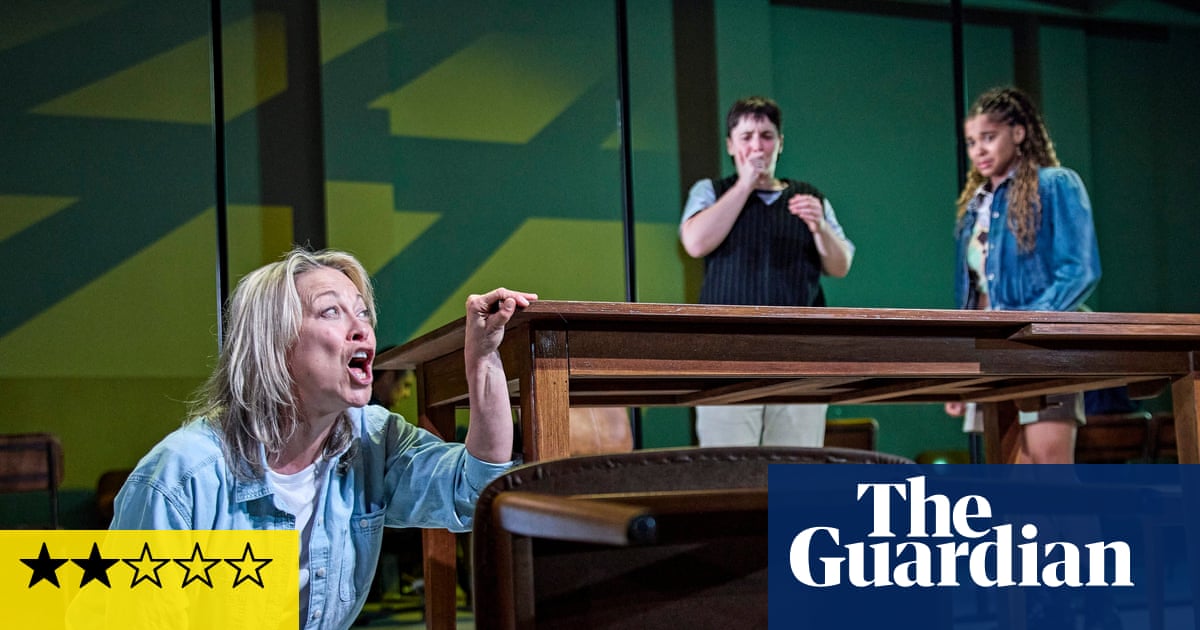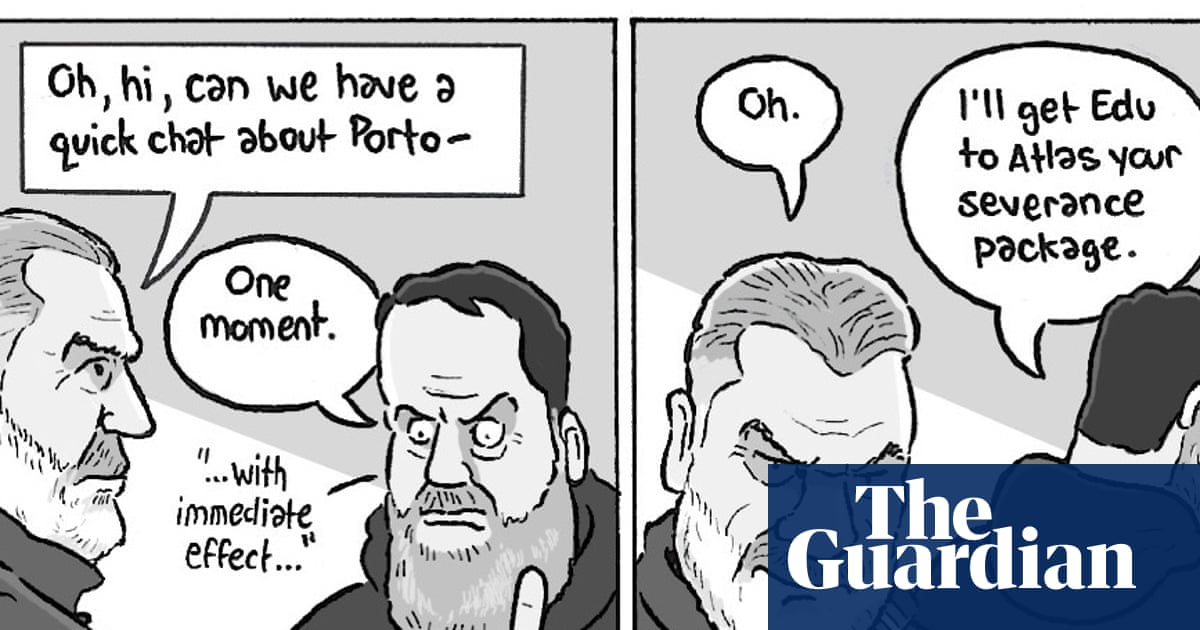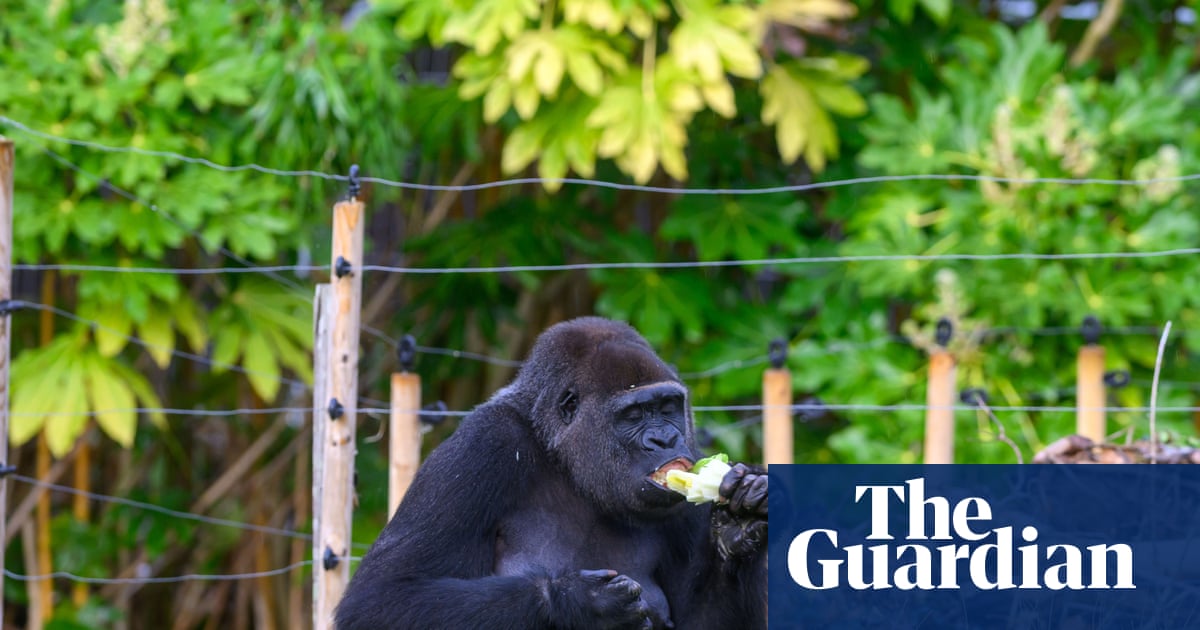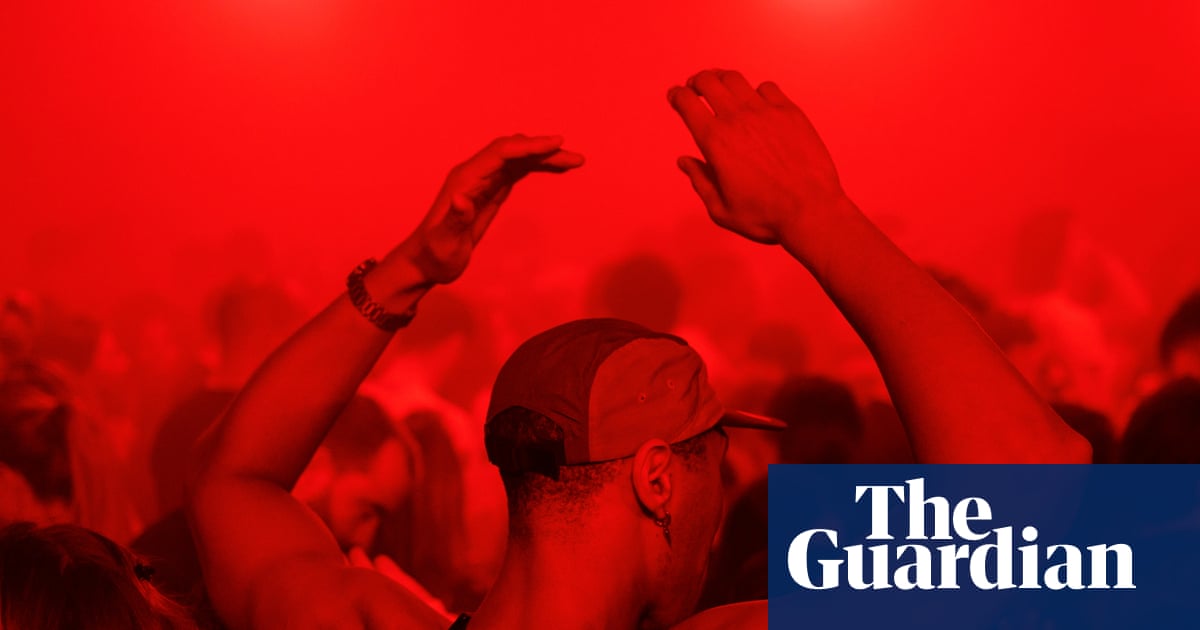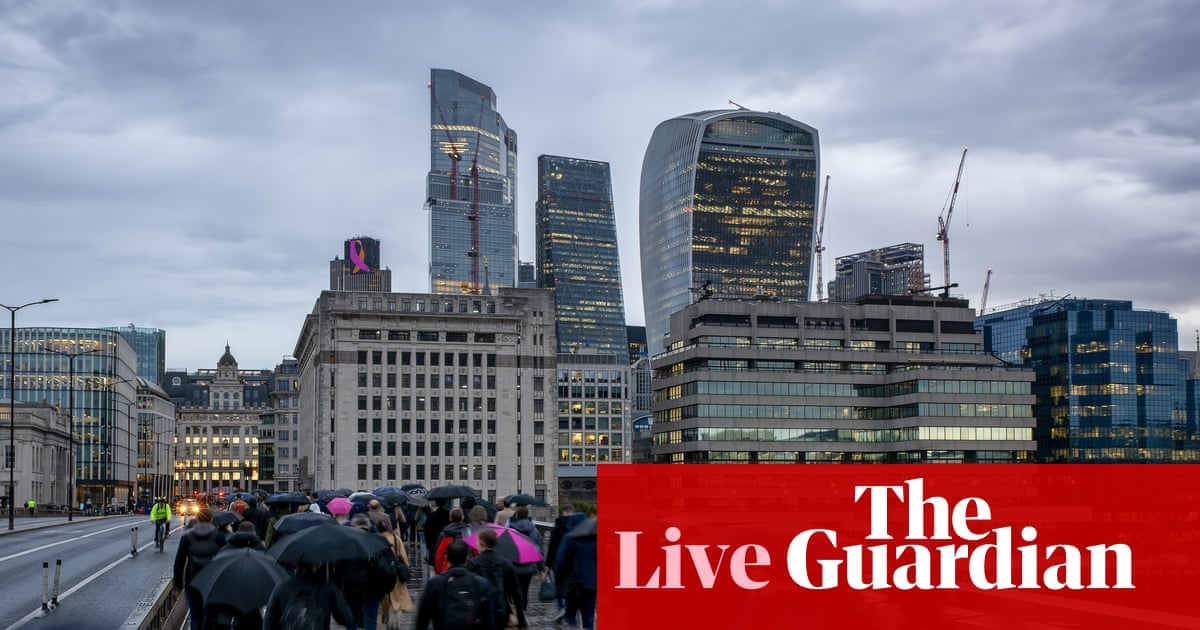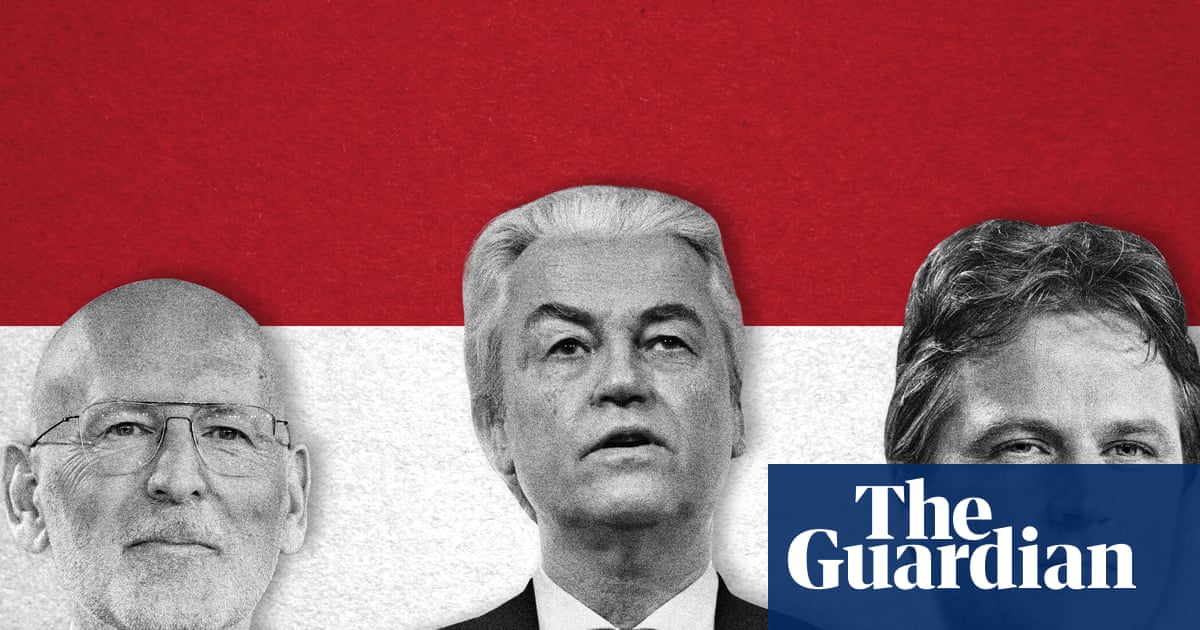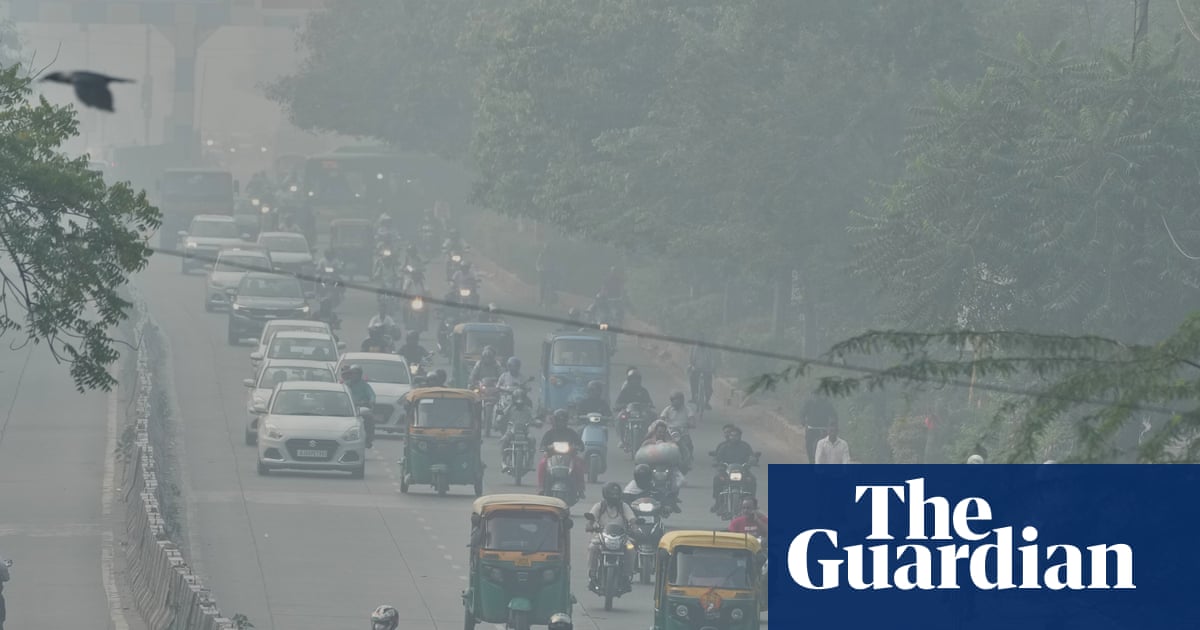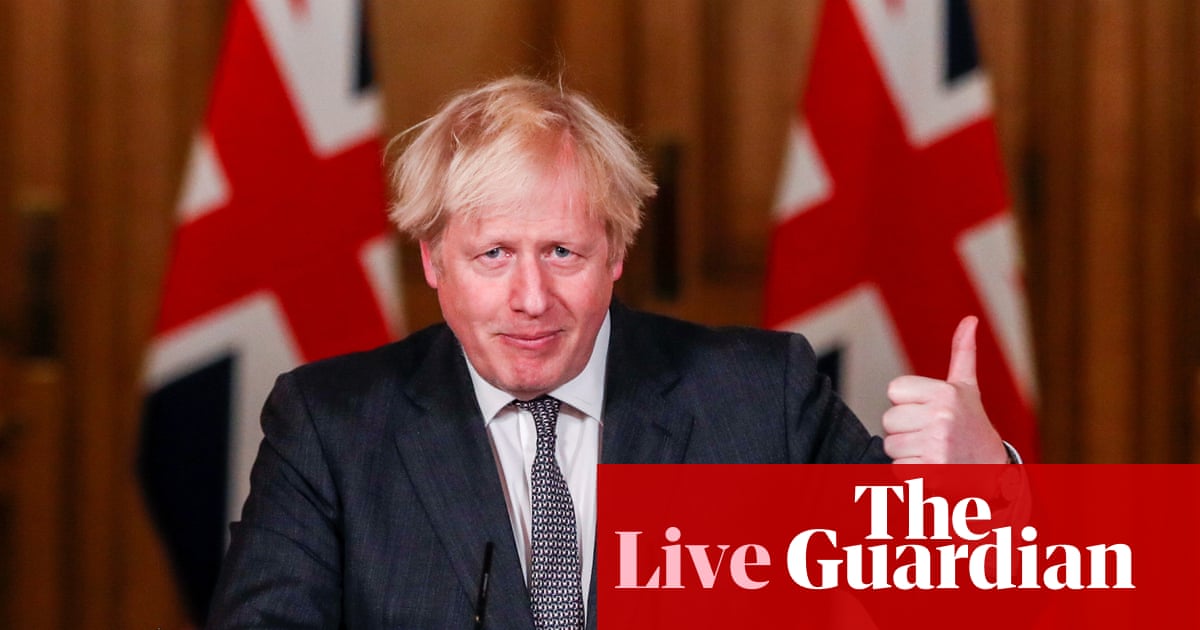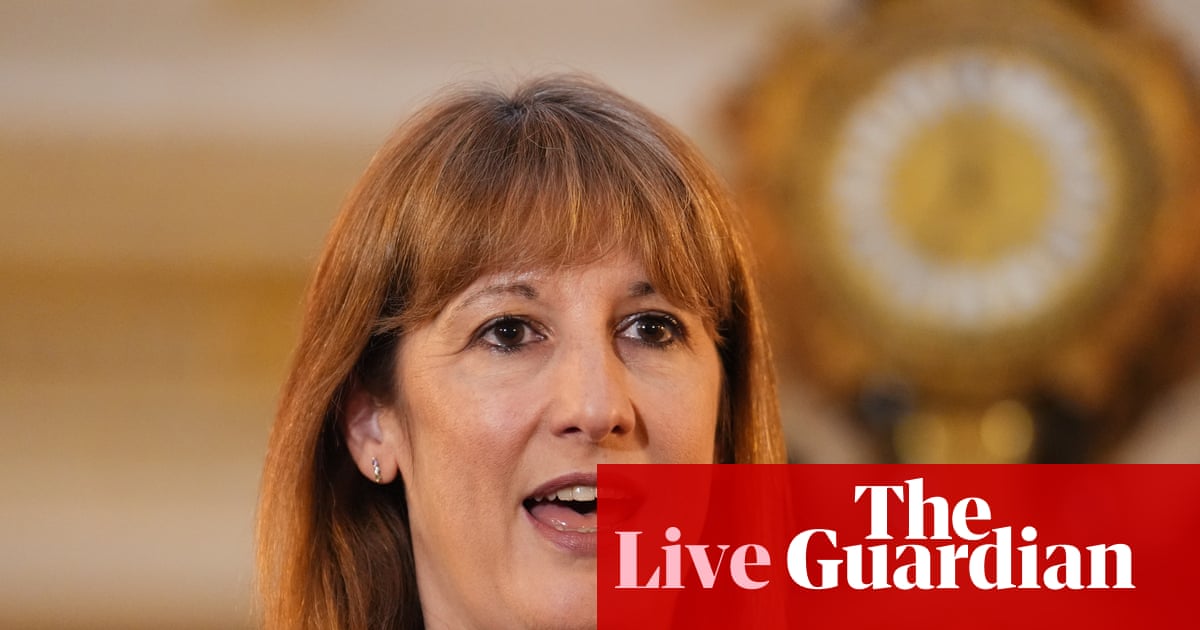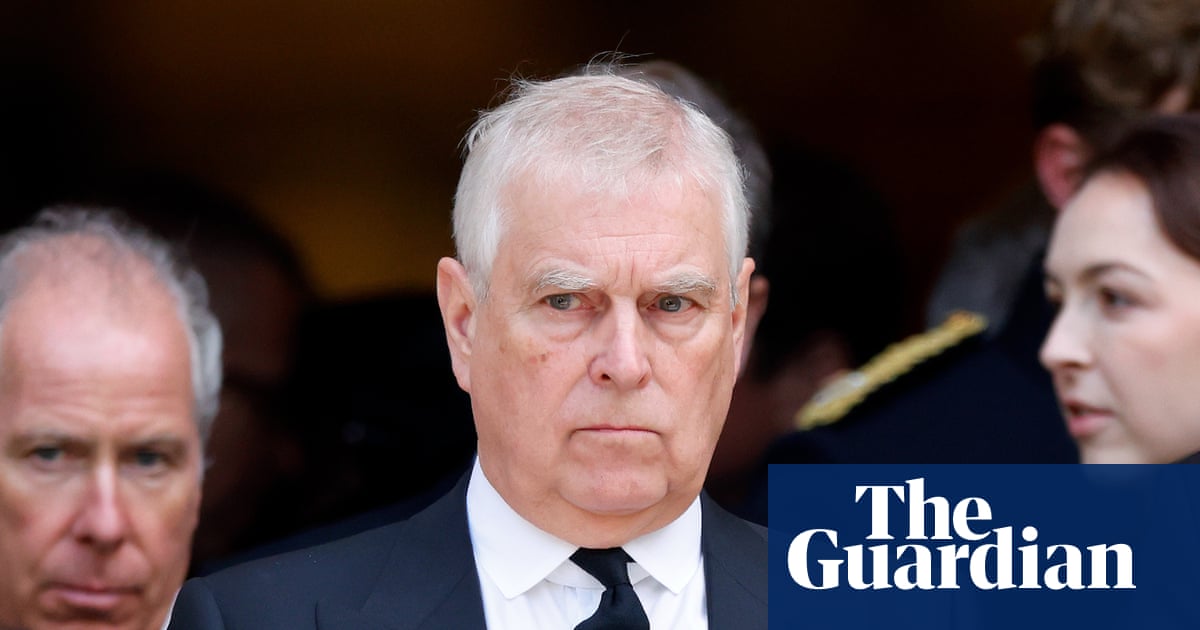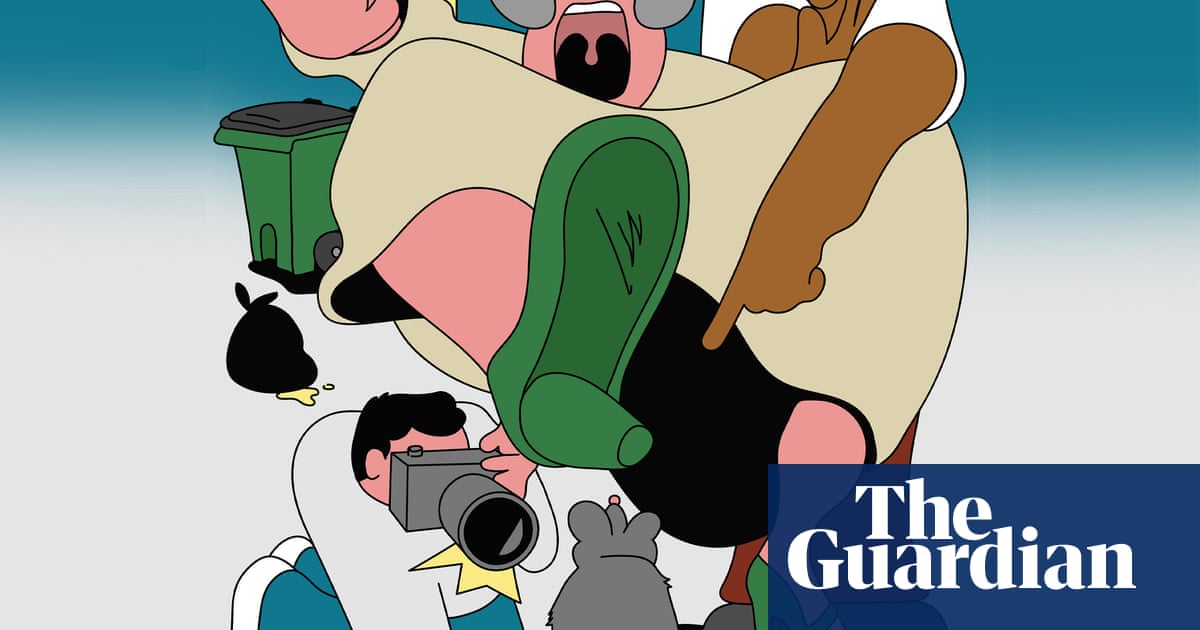If social media posts are anything to go by, Tommy Robinson is planning to visit Villa Park next month as a Maccabi Tel Aviv fan. What can possibly have attracted the Luton-born political activist to the Israeli Premier League’s second-placed club? The stylish all-action midfield play of Dor Peretz? The stirring run to the group stages of the 2004-05 Champions League? Perhaps, in the fashion of the club’s former manager Robbie Keane, Robinson’s embrace is simply the fulfilment of a cherished and multifaceted boyhood dream.
But of course there is a natural synergy there too, one we should probably have identified long before the Uefa computer pitted Aston Villa against the club long known in Israel as “the country’s team”, and inadvertently threw a hand grenade into British politics. Like Robinson, Maccabi attracts a fervid following of young men from the far right, who gather at weekends to chant racist and anti-Arab slogans. Like Robinson’s disciples, Maccabi’s fans have occasionally been known to indulge in a little light violence. A decade ago Maccabi fans unveiled a banner reading “refugees (not) welcome”, a refrain with which you can imagine the artist formerly known as Stephen Yaxley-Lennon nodding heartily along.
Then there was Maharan Radi, the Israeli international midfielder who after signing for the team was greeted with racist slurs and death threats by members of the Maccabi Fanatics, the club’s ultra group. Anti-Arab graffiti began to appear in the city. Later, many years after leaving the club, Radi would testify that some of his teammates had tried to mediate with some of the more hard-line supporters. A few days later, Radi said, they reported back. “There’s nothing we can do,” they told him. “They just hate Arabs.”
None of this explains on its own the decision by West Midlands police to ban travelling Maccabi fans from their Europa League game against Aston Villa. But it does offer a context so sorely lacking from the incendiary discussion and ill-informed grandstanding that have engulfed the subsequent days. Many Maccabi fans will doubtless have travelled to Birmingham with the sole intention of watching a game of football. But it takes a certain wilful blindness to ignore the likelihood that a significant number will have had other intentions in mind.
Partly this stems from the fact that elite football in England is a largely depoliticised space, that most fanbases are not overtly activist in the manner of many of their foreign counterparts. In Israel, by contrast, football and politics remain deeply intertwined. Traditionally Maccabi teams were associated with the right; Hapoel with the left. And even if this distinction is no longer strictly observed, football in Israel – as with much of civic life – is often an alternative battleground upon which to enact some very familiar feuds.
In 2020, a group of protesters demonstrating against the prime minister, Benjamin Netanyahu, was attacked by a group of Maccabi Fanatics wielding batons and broken bottles. Anti-Arab chants and songs are commonplace at home games. A banner displayed at a recent game read “fuck Hamas, fuck St Pauli, fuck Hapoel”: the last of these a reference to their city rivals, the second a small German club famous for its progressive, anti-racist values.
The point here is that to treat this as your common or garden football hooliganism threat is to miss the point. Rather, it is the prospect of targeted, politicised footballing violence that renders this particular case so potentially toxic. Violence of the sort seen in Amsterdam late last year, when travelling fans and local thugs fought in the streets, far from the Johan Cruyff Arena where Ajax and Maccabi Tel Aviv were playing. Israeli fans, an Arab taxi driver and pro-Palestinian protesters were all targeted and subjected to lawless violence.
Who started it? Who was more to blame? At what precise point did tension, provocation and goading cross the boundary into criminality? Nobody can really be sure, and in any case these are questions whose answers are framed by what you already choose to believe. And in recent days, as politicians from across the spectrum have stampeded to condemn West Midlands police – from the centre to the far right – it is clear what lessons our political class chose to learn from the episode.
Perhaps, given the government’s recent record on policing protest, we should assume it has some classified intelligence on the Maccabi Tel Aviv fanbase that it is regrettably unable to share with us. Perhaps they’ve done a secret straw poll of the Fanatics and concluded that they’re all great lads who just want to see Villa’s Morgan Rogers in the flesh. In which case, it certainly seems to have materialised in a hurry.
Aston Villa put out their statement confirming the police decision at 5.17pm on Thursday. Kemi Badenoch put out her reaction at 8.02pm. Nigel Farage’s statement dropped at 8.58pm. Keir Starmer’s at 9pm. Ed Davey, 9.45pm (must do better). Presumably they all took the time to consult stakeholders, take security briefings and make the required calls to foreign officials before doing so. But the speed of the bandwagon-jumping should at least give us pause.
There is, ironically, a broader cross-border debate to be had about the increasingly sinister securitisation of football fans at matches. After all, Maccabi are by no means the only club to see their supporters banned from European away games. Eintracht Frankfurt fans will not be welcome in Naples this week. Ajax fans were banned from Marseille last month. Even the cancellation of the Tel Aviv derby at the weekend was as much a case of police brutality as fan behaviour, part of a pattern by which Israeli security forces have increasingly been engaged in stoking violence rather than trying to suppress it.
But of course none of this fits neatly into a clicky, media-friendly race-war narrative, fed by social media algorithms and all the usual provocateurs. We are spun the line that a few hundred far-right ultras with a history of violence are somehow representative of all Jews everywhere, in much the same way that the Netanyahu government appoints itself the mouthpiece for an entire religion of 16 million people based around the world, many of whom despise him and actively mobilise against him every day. We are expected to believe in the existence of a hostile antisemitic conspiracy co-hatched by the police and the residents of Birmingham.
And yes, on the face of it this is all fairly small-scale stuff: a decision affecting the fans of one football club in a second-tier game that would scarcely attract the slightest attention otherwise. But at the same time it is a fascinating case study into the instincts of our political and media class. You want concerted international action against Israel for its crimes in Gaza and elsewhere? Good luck with that when you can’t even get a few violent far-right football fans turned away at Birmingham Airport.
The quiet part, of course, is that when Maccabi fans speak out against refugees, chant “death to Arabs”, associate their enemies with Hamas and commit violence in our city centres, there is a small but significant part of our country that tacitly agrees with them, and a much larger part of our country willing to humour them out of expediency.
And really Robinson is just the thin end of the wedge here, the racist canary in the mine, the reductio ad absurdum of an impulse that has long been embedded in our politics. Choosing to stand with the far-right foreign football hooligan against the local police force: this, apparently, is what British patriotism looks like in 2025. Truly, we are through the looking-glass here.

.png) 5 hours ago
5
5 hours ago
5
